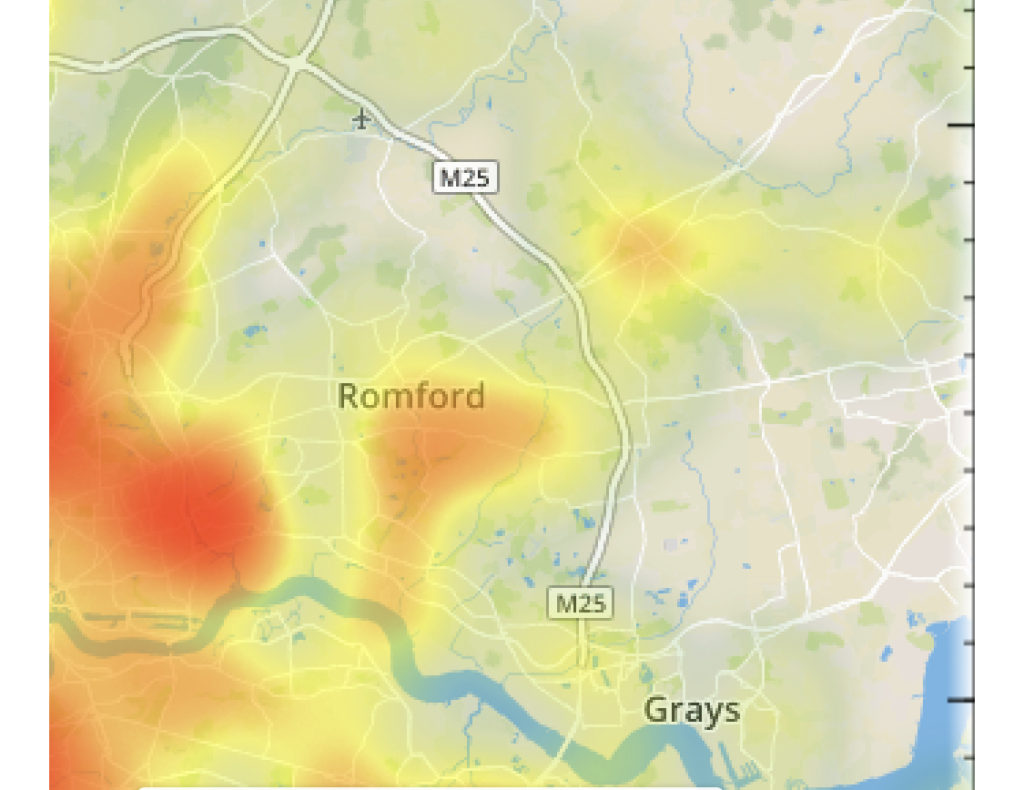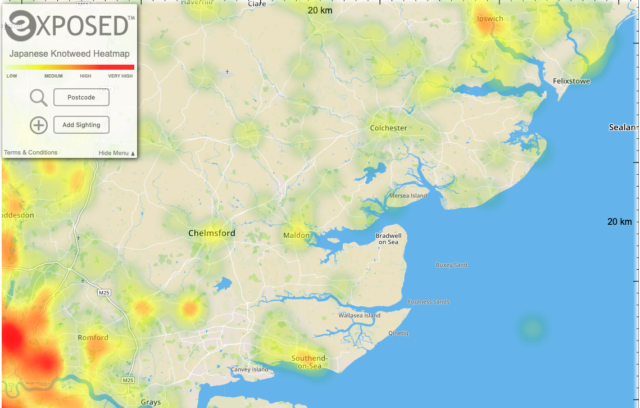The top ten Japanese knotweed hotspots in the Eastern region of the UK have been revealed today by Environet. Norwich is the worst affected location, with 72 infestations within a 4km radius of the city centre, followed by Dunstan just south of Norwich and Ipswich in Suffolk.
Described by the Environment Agency as “indisputably the UK’s most aggressive, destructive and invasive plant”, Japanese knotweed grows rampantly along railways, waterways, in parks and gardens and is notoriously difficult to treat without professional help.
Environet has mined data from its online heatmap Exposed: The Japanese Knotweed Heatmap, launched earlier this year, which records Japanese knotweed sightings across the UK. The map is intended to inform local homeowners and potential homebuyers of the local presence of Japanese knotweed, enabling them to enter a postcode to discover the number of reported knotweed sightings nearby, with hotspots clearly visible in yellow or red.
Table 1: Top ten Japanese knotweed hotspots in East England
|
No. |
Location |
No. of infestations within 4km |
|
1 |
Norwich city centre, Norfolk |
72 |
|
2 |
Dunstan, Norfolk |
53 |
|
3 |
Ipswich, Suffolk |
40 |
|
4 |
Beccles, Norfolk |
28 |
|
5 |
Lowestoft, Suffolk |
22 |
|
=6 |
Southend-on-Sea, Essex |
21 |
|
=6 |
Luton Airport, Bedfordshire |
21 |
|
8 |
Stansted Airport, Essex |
17 |
|
9 |
Stalham, Norfolk |
15 |
|
10 |
Cambridge Airport, Cambridgeshire |
13 |
Japanese knotweed can deter buyers, making a property difficult to sell and prevent a mortgage lender approving a loan unless a treatment plan is in place with an insurance-backed guarantee, thereby impacting a property’s value by around 10%. Sellers are required by law to inform potential purchasers whether their home is, or has been, affected by Japanese knotweed, which can act as a deterrent even if the infestation has been treated.

Environet estimates that Japanese knotweed currently affects 4 to 5% of UK properties, wiping a total of £20 billion off house prices.
Nic Seal, Founder and MD of Environet, said, “Japanese knotweed has become a major problem in parts of the East of England, particularly around Norwich and in coastal towns such as Lowestoft and Southend-on-Sea. It is impacting property prices, halting sales and causing a huge amount of stress and worry for homeowners.
“At times such as this when the property market is slow and fewer homes are being bought and sold, it continues to spread unchecked. Anyone thinking about buying a property in the region, particularly in these hotspots, would be wise to check the number of infestations in the proximity of their postcode and consider instructing a Japanese knotweed survey on the property.”
Homeowners who are concerned about knotweed infestations near their home could consider purchasing a specialist Japanese knotweed indemnity policy, which covers them for the cost of treatment, repairs, legal costs and any diminution of the property’s value, should knotweed arise.




